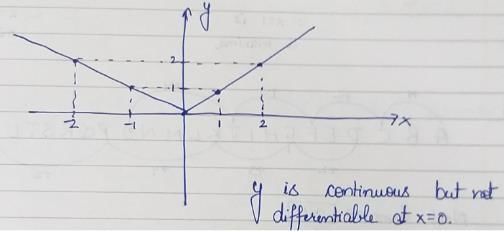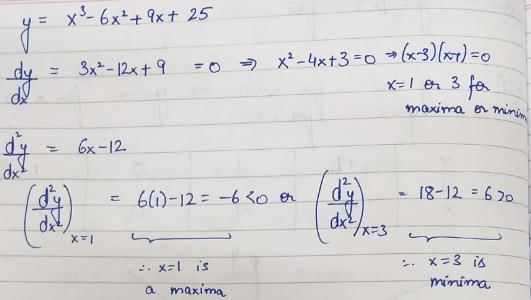Civil Engineering (CE) Exam > Civil Engineering (CE) Tests > Test: Theorems of Integral Calculus- 2 - Civil Engineering (CE) MCQ
Test: Theorems of Integral Calculus- 2 - Civil Engineering (CE) MCQ
Test Description
20 Questions MCQ Test - Test: Theorems of Integral Calculus- 2
Test: Theorems of Integral Calculus- 2 for Civil Engineering (CE) 2025 is part of Civil Engineering (CE) preparation. The Test: Theorems of Integral Calculus- 2 questions and answers have been prepared
according to the Civil Engineering (CE) exam syllabus.The Test: Theorems of Integral Calculus- 2 MCQs are made for Civil Engineering (CE) 2025 Exam.
Find important definitions, questions, notes, meanings, examples, exercises, MCQs and online tests for Test: Theorems of Integral Calculus- 2 below.
Solutions of Test: Theorems of Integral Calculus- 2 questions in English are available as part of our course for Civil Engineering (CE) & Test: Theorems of Integral Calculus- 2 solutions in
Hindi for Civil Engineering (CE) course.
Download more important topics, notes, lectures and mock test series for Civil Engineering (CE) Exam by signing up for free. Attempt Test: Theorems of Integral Calculus- 2 | 20 questions in 60 minutes | Mock test for Civil Engineering (CE) preparation | Free important questions MCQ to study for Civil Engineering (CE) Exam | Download free PDF with solutions
Test: Theorems of Integral Calculus- 2 - Question 1
A function is given by f(t) = sin2t + cos 2t. Which of the following is true?
Detailed Solution for Test: Theorems of Integral Calculus- 2 - Question 1
Test: Theorems of Integral Calculus- 2 - Question 2
Following are the values of a function y(x) : y(-1) = 5, y(0), y(1)  as per Newton’s central difference scheme is:
as per Newton’s central difference scheme is:
Detailed Solution for Test: Theorems of Integral Calculus- 2 - Question 2
Detailed Solution for Test: Theorems of Integral Calculus- 2 - Question 3
Test: Theorems of Integral Calculus- 2 - Question 4
The function f(x) = |x+1| on the interval [-2, 0]
Detailed Solution for Test: Theorems of Integral Calculus- 2 - Question 4
Detailed Solution for Test: Theorems of Integral Calculus- 2 - Question 5
Test: Theorems of Integral Calculus- 2 - Question 6
What is the derivative of f(x) = |x| at x = 0?
Detailed Solution for Test: Theorems of Integral Calculus- 2 - Question 6
Detailed Solution for Test: Theorems of Integral Calculus- 2 - Question 7
Detailed Solution for Test: Theorems of Integral Calculus- 2 - Question 8
Test: Theorems of Integral Calculus- 2 - Question 11
The function f(x) = x3 - 6x2 + 9x + 25 has
Detailed Solution for Test: Theorems of Integral Calculus- 2 - Question 11
Detailed Solution for Test: Theorems of Integral Calculus- 2 - Question 12
Detailed Solution for Test: Theorems of Integral Calculus- 2 - Question 13
Test: Theorems of Integral Calculus- 2 - Question 14
The following plot shows a function y which varies linearly with x. The value of the integral I =
Detailed Solution for Test: Theorems of Integral Calculus- 2 - Question 14
Detailed Solution for Test: Theorems of Integral Calculus- 2 - Question 15
Test: Theorems of Integral Calculus- 2 - Question 16
The length of the curve between x = 0 and x = 1 is
Detailed Solution for Test: Theorems of Integral Calculus- 2 - Question 16
Detailed Solution for Test: Theorems of Integral Calculus- 2 - Question 17
Test: Theorems of Integral Calculus- 2 - Question 18
A continuous-time system is described by y (t) = e − x (t) where y (t) is the output and x (t) is the input. y(t) is bounded.
Detailed Solution for Test: Theorems of Integral Calculus- 2 - Question 18
Detailed Solution for Test: Theorems of Integral Calculus- 2 - Question 19
Detailed Solution for Test: Theorems of Integral Calculus- 2 - Question 20
Information about Test: Theorems of Integral Calculus- 2 Page
In this test you can find the Exam questions for Test: Theorems of Integral Calculus- 2 solved & explained in the simplest way possible.
Besides giving Questions and answers for Test: Theorems of Integral Calculus- 2, EduRev gives you an ample number of Online tests for practice
Download as PDF























